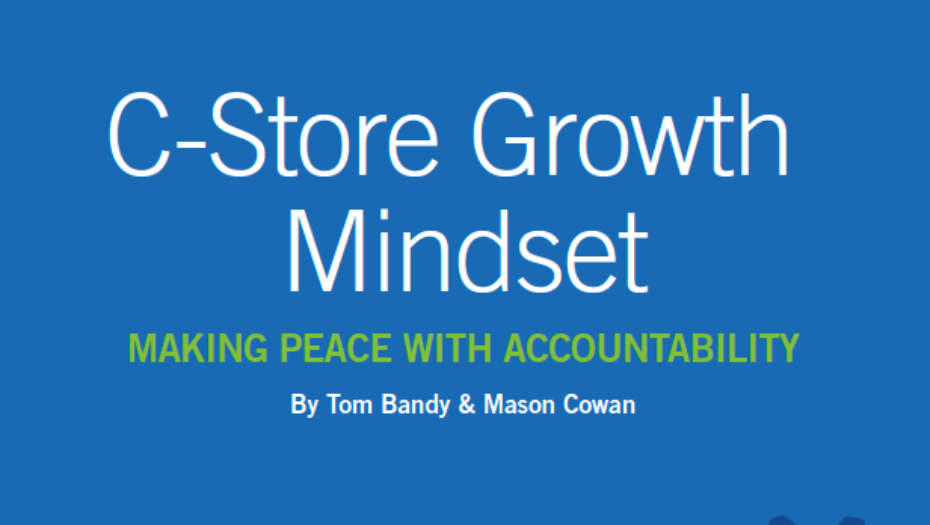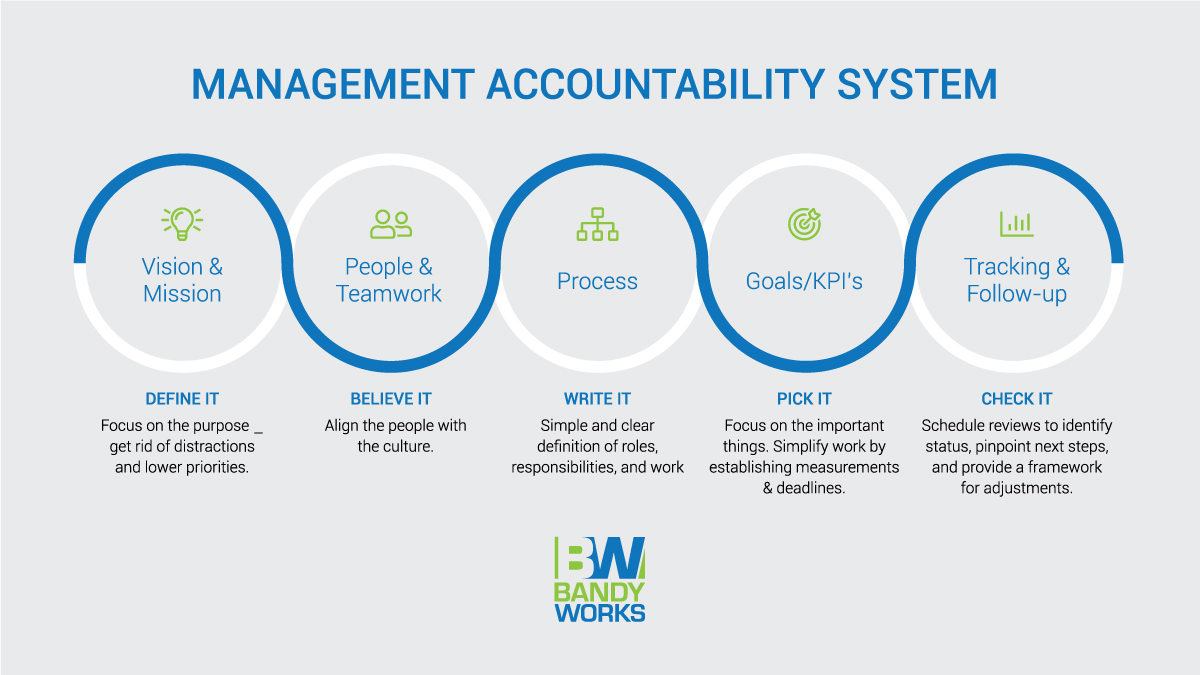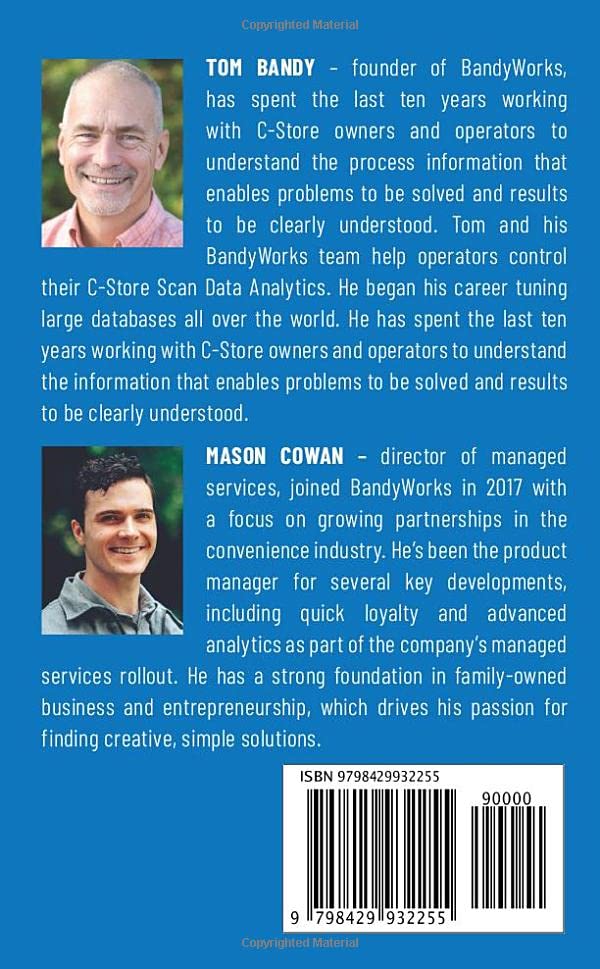
April 22, 2022
C-Store Growth Mindset: Making Peace with Accountability Is Published
The C-Store Growth Mindset book has been published. The findings are based on a decade of operations and a career of retail data analytics. It chronicles family chains that practice the growth mindset to grow their chain. BandyWorks’ Tom Bandy and Mason Cowan published field-proven case studies of principles and best practices that enable high growth, high profit c-store growth.
“During my career, I was fortunate to be part of teams with big missions. They made products and services that stopped bullets, prioritized organ transplants, produced high stock returns, and increased factory production. Working with great companies like Dupont (Kevlar), UNOS (organ transplants), GE Capital, and hundreds of manufacturing companies, I worked on teams that produced data analytics that made products better, improved management and streamlined work.” explains Tom Bandy, Founder of BandyWorks. For the last decade we have used this experience in the c-store world to help make retail operations more profitable and less complex.
Independent research for C-Store Growth Mindset
To ensure we correctly defined the principles, Mason Cowan found and reviewed over 20 university and other resources to ensure our accountability principles were validated by independent professional researchers. Here are a sample of the research findings that confirm the principles.
| Study/Concept Source | Summary |
| Jennifer Lerner and Philip Tetlock, Accounting for the Effects of Accountability, Carnegie Mellon, Ohio State, 1999 | Accountability and ground rules are fluid. We must adapt to subtle changes. |
| Mark Latino, Robert Latino, Kenneth Latino, Root Cause Analysis: Improving Performance for Bottom-Line Results, 1998 | Leadership awareness of bad behavior, makes it standard practice. |
| Jordan Peterson, 12 Rules for Life, An Antidote to Chaos, 2018 | Always tell the truth or at least don’t lie. |
| General Stanley McChrystal, Leaders Myth and Reality, 2018 | Strong aligned teams are accountable to themselves and drive the work. |
| The Thin Book Of Trust, Charles Feltman, 2008 | Trust is based on four components: Care, Sincerity, Reliability and Competence. Care is the most important. |
| McKinsey & Company, How Goal Setting Can Drive Employee Engagement, 2019. | Companies who report effective performance management systems, 91% say that employees’ goals are linked to business priorities. |
| Balcetis & Dunning, See what you want to see: Motivational influences on visual perception, NYU, 2006 | Goal focus and motivation are result multipliers. |
| Procrastination, Deadlines, and Performance: Self-Control by Precommitment Dan Ariely MIT, Klaus Wertenbroch INSEAD, 2002 | Externally imposed, evenly spaced deadlines produce the best results. |
C-Store Case Studies
Most importantly, we include half a dozen case histories with our clients to document operations-tested approaches using the growth mindset. The case histories include:
- Garrison Food Mart – Family, Focus and Priorities – 13 stores
- Split Stop – Staff Are the Most Important Part – 19 Stores
- Star Express – 8 stores & Express Lanes – 9 stores – Communication Is Key
- McIntosh Energy – 4 stores – Make It Clear, Simple & Easy
- Sunrise Convenience – 42 stores – Focused, Easy Actions. Trust Your Instincts
- Smith & Shores – 12 stores- Make Time to Track
“All five principles are used everyday in my work. I cannot just pick one. This new book is a concise summary of things we do every day. I like it as it just makes it easy to focus on the things that just make sense” observed Greg Hendricks, of Garrison Food Mart (13 store chain in Texas). “We know these things, but the book is a great tool to help us use it daily. We are all busy and it reminds us of what we need to do.”
The book recognizes that c-store operators are great businesspeople. They want a simple way to implement an accountability system. The results of the case studies show how family chains are using best practices to recognize and motivate staff. “We want our staff to achieve great results and work in a store where they like serving customers and having a great team” stated Sam Bhambratt of Split Stop, in Augusta, Georgia.
Accountability Principles
The accountability principles of vision, teamwork, goals, process, and follow-up. The specific explanations with both research and case studies make it easy to share and apply to the everyday work of convenience. Accountability fits best into a system that matches the work culture and is created to support the primary purpose of the company.

You may read more about the book online.
You may order the book from Amazon.
